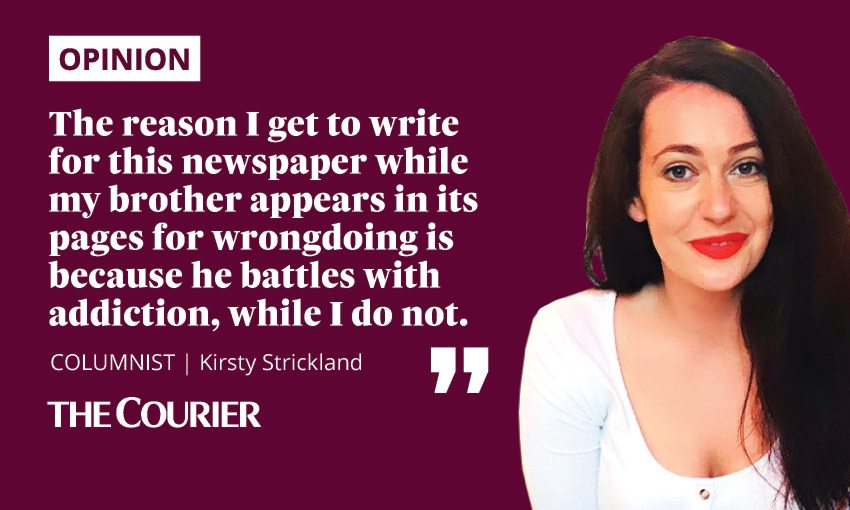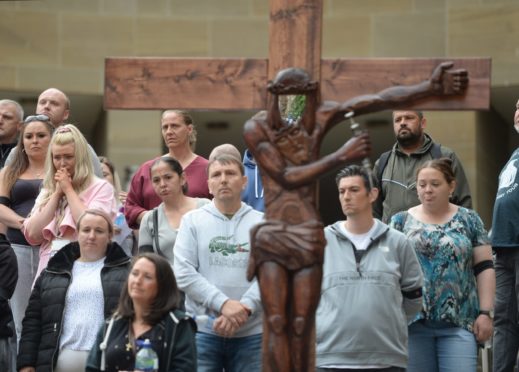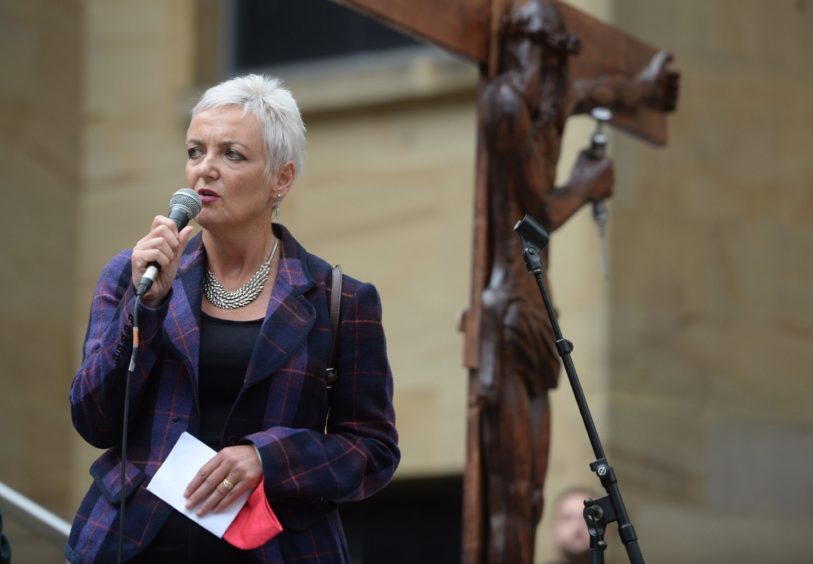A few weeks ago, I stumbled upon a story about my brother on The Courier’s website.
A similar thing has happened numerous times over the years.
One minute I’m reading a news website or aimlessly scrolling through social media and the next I’m confronted by the lurid details of my eldest brother’s criminal exploits.
Like many brothers, dads, mums and daughters across Scotland, my eldest sibling is addicted to drugs.
For most of my adult life, he has been stuck in a cycle of addiction, criminality and periods of incarceration.

There was a time when we were close.
He doted on me and annoyed me in equal measure. He was charismatic and kind.
I was the eldest girl and he was the eldest boy. There was no difference between us in terms of upbringing or intellect.
Our paths have diverged now but we started from the same place.
The reason I get to write for this newspaper while my brother appears in its pages for wrongdoing is because he battles with addiction, while I do not.
I hope he’ll recover, I fear he’ll die
One day, I’d love to be in a position to write about his recovery from substance abuse.
Pragmatism and weary experience disavows me of that hope.
The next time his name is printed in The Courier it will likely be in a report of a criminal trial.
What I fear is that it will be as one of the casualties from Scotland’s drugs death crisis.
To Scotland’s eternal shame, we remain the drug death capital of Europe
Last month, we saw those struggling with addiction shamefully referred to as “junkies’” on the front page of a Scottish newspaper.
Last week, Scotland’s drug crisis was laid bare once again.
The figures speak for themselves. In 2020, there were 1,339 drug-related deaths.
To Scotland’s eternal shame, we remain the drugs death capital of Europe.
People from the most deprived areas of Scotland are 18 times more likely to die than those from the least deprived.
1. The number of lives lost to drugs is unacceptable, each one a human tragedy. @scotgov does not shirk the responsibility & we are determined to make changes that will save lives. These 2020 figures (though no less shameful because of it) predate actions set out at start of year
— Nicola Sturgeon (@NicolaSturgeon) July 30, 2021
This is the seventh year in a row that drug-related deaths have risen and so, when the figures were released, sorrow was in much greater supply than shock.
But we should retain our capacity to feel shock at the scale and suffering of these preventable deaths.
As ever, the noise around drugs deaths is loudest in the days that straddle the release of the statistics.
And one of the features of the intense, annual focus on the crisis is that it is now used as a proxy for those on either side of the constitutional debate to bolster their positions.
Some SNP supporters have been quick to try and absolve their party of any blame.
But the SNP has been in power for 14 years.
You can find Nicola Sturgeon’s expressions of regret sincere, and her pledges to act credible, while still acknowledging that, on her government’s watch, drug-related deaths have risen.
It has taken the tenacity of campaigners and those affected by the drugs death crisis for the Scottish Government to belatedly treat the issue with the seriousness it deserves.
And there is plenty more blame to go around.
When we know the link between poverty, community deprivation and drug-related deaths, politicians of all stripes should be examining their parties’ records on austerity and the destructive unpicking of the social security net.
Often, the relationship between the Scottish and UK governments is unproductive. At its worst, it has been actively hostile.
Drugs death action needs co-operation
If the drugs deaths crisis is to be treated as the public health emergency it is, then both governments need to engage in good faith.
Some measures that could help alleviate the crisis are reserved to Westminster.
The UK government has thus far proved unyielding on initiatives like drug consumption rooms and reform of the Misuse of Drugs Act.
If Conservatives seek to exploit the crisis politically while remaining uncompromising on the steps they could take to help reduce harm, then their condemnation will be judged hollow.
Warm words are of no comfort to bereaved families and the ones who go to sleep every night worrying about the fate of their loved ones
Nicola Sturgeon described the number of deaths from drugs as “a human tragedy’’, adding: “I know that from the Scottish Government what is required isn’t words, but action to prevent people dying. And that is what we are determined to deliver.”
If the Scottish Government is to live up to its promises, all eyes must be firmly on the ball and they must stay on it, long after the latest drugs death numbers have slipped from the headlines.
Nicola Sturgeon is right – warm words are of no comfort to bereaved families and the ones who go to sleep every night worrying about the fate of their loved ones.
The drugs death crisis is Scotland’s shame, and families like mine need politicians who will stay true to their word when they promise they will do everything they can to fix it.

